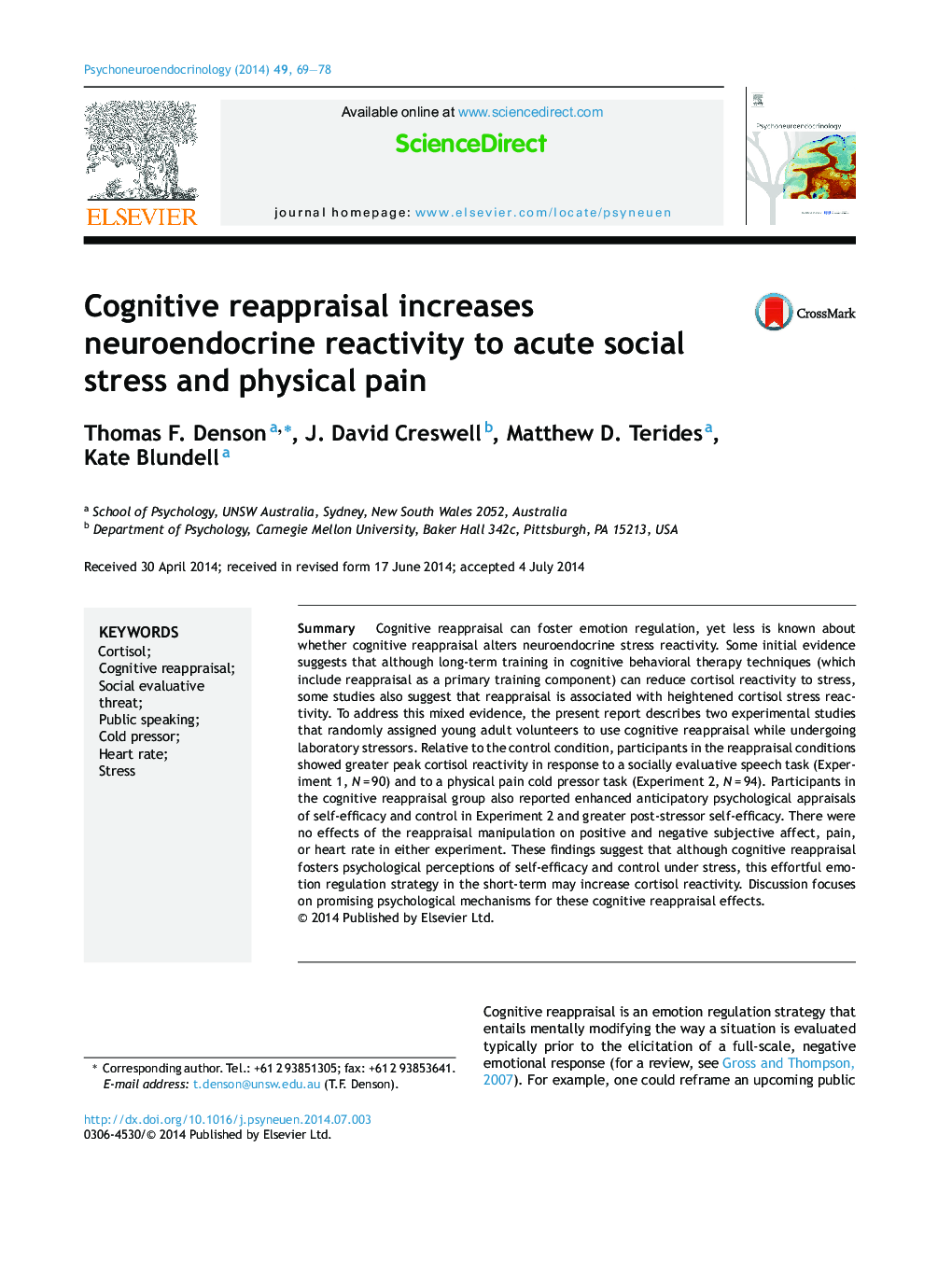| Article ID | Journal | Published Year | Pages | File Type |
|---|---|---|---|---|
| 6819504 | Psychoneuroendocrinology | 2014 | 10 Pages |
Abstract
Cognitive reappraisal can foster emotion regulation, yet less is known about whether cognitive reappraisal alters neuroendocrine stress reactivity. Some initial evidence suggests that although long-term training in cognitive behavioral therapy techniques (which include reappraisal as a primary training component) can reduce cortisol reactivity to stress, some studies also suggest that reappraisal is associated with heightened cortisol stress reactivity. To address this mixed evidence, the present report describes two experimental studies that randomly assigned young adult volunteers to use cognitive reappraisal while undergoing laboratory stressors. Relative to the control condition, participants in the reappraisal conditions showed greater peak cortisol reactivity in response to a socially evaluative speech task (Experiment 1, NÂ =Â 90) and to a physical pain cold pressor task (Experiment 2, NÂ =Â 94). Participants in the cognitive reappraisal group also reported enhanced anticipatory psychological appraisals of self-efficacy and control in Experiment 2 and greater post-stressor self-efficacy. There were no effects of the reappraisal manipulation on positive and negative subjective affect, pain, or heart rate in either experiment. These findings suggest that although cognitive reappraisal fosters psychological perceptions of self-efficacy and control under stress, this effortful emotion regulation strategy in the short-term may increase cortisol reactivity. Discussion focuses on promising psychological mechanisms for these cognitive reappraisal effects.
Keywords
Related Topics
Life Sciences
Biochemistry, Genetics and Molecular Biology
Endocrinology
Authors
Thomas F. Denson, J. David Creswell, Matthew D. Terides, Kate Blundell,
